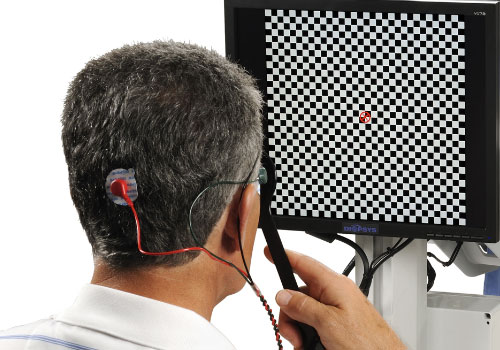
VEP (Visual Evoked Potential)
VEP is a diagnostic tool used to measure the electrical activity in the brain in response to visual stimuli. It is especially helpful in diagnosing optic nerve conditions and assessing visual pathways. Dr. Chinmay Kumbhar, with his specialized knowledge in neurology, uses VEP to evaluate patients with vision-related neurological issues, such as multiple sclerosis or optic neuritis.
VEP helps in detecting early signs of neurological damage, enabling Dr. Kumbhar to create early intervention strategies to preserve vision and prevent further complications.
Frequently Asked Questions (FAQ's):
Ans: Diagnosis involves a thorough medical history, neurological exams, imaging techniques (like MRI or CT scans), and laboratory tests (such as blood tests and cerebrospinal fluid analysis).
Ans: Treatment depends on the type of infection. It may include antibiotics for bacterial infections, antivirals for viral infections, antifungals for fungal infections, or antiparasitic treatments. Supportive care is also provided to manage symptoms.
Ans: Treatment duration varies depending on the type and severity of the infection. Some infections may require weeks of treatment, while others may need longer-term care and monitoring.
Ans: If you notice symptoms like a high fever, headaches, seizures, or changes in behavior, consult Dr. Chinmay Kumbhar immediately for proper diagnosis and treatment.
Ans: Yes, if left untreated or not managed properly, neuro-infections can lead to long-term neurological issues such as cognitive impairment, motor skill problems, and seizures.
